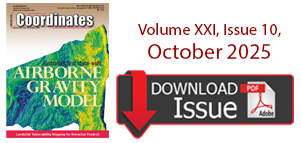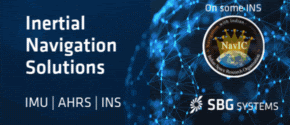| Galileo Update | |
Galileo Update
|
||||||||||
Norway signs Galileo agreement with Commission
Norway and the European Commission have signed a cooperation agreement on satellite navigation. Norway is an important participant in the Galileo programme: Norwegian industry is involved since the beginning of the programme, two important ground stations are hosted in Norwegian territory: one on the island of Svalbard and one in Antarctica. A third is planned for on the Jan Mayen island.
www.esa.int
Galileo ground station takes shape in Pacific
The latest addition to the worldwide network of stations serving the Galileo satellite navigation system has been inaugurated in New Caledonia. This French-administered group of islands is in the southwest Pacific. The new ground station is located near the capital Nouméa on New Caledonia’s main island of Grand Terre.
www.esa.int
Emergency EU Galileo sat-nav service plans develop
Secure satellite navigation for emergency and security services moved closer to reality under proposals published by the European Commission.
The proposals cover access rules for the Public Regulated Service (PRS), which will be set up on the back of Galileo satellite system and will use highly encrypted signals to protect against threats to infrastructure in the case of disasters or terrorist threats. PRS will only be accessible to authorised governmental bodies and, according to the Commission, “third [party] countries and international organisations who conclude the appropriate agreements with the European Union”.
“The safety and security of each and every European citizen lies at the heart of this proposal,” industry and entrepreneurship commissioner Antonio Tajani said in a statement. “Given our increasing reliance on satellite navigation infrastructures, there is an urgent need to ensure that key services, such as our police forces and rescue and emergency services, continue to function in moments of crisis, terrorist threat or disaster.
“Furthermore, the market for PRS applications offers an important opportunity for Europe’s entrepreneurs,” he added.
According to the Commission, PRS will be resistant to so-called spoofing, where satellite signals are distorted or jammed. “PRS could be used in crisis situations where it is important that emergency and security services continue to function even when other services have been cut as part of security measures,” the Commission said.
The proposals are intended to control who accesses PRS, the production of service’s receivers and the potential export of the service’s receivers. Member states who wish to use the system will gave to set up a PRS authority to manage and control end-users and the production of PRS receivers. The European Parliament and Council will have to approve the new rules if they are to come into force.
PRS is one of five services that will be offered over the Galileo satellite constellation. The other services are an open service for public sat-nav, a search-and-rescue service, a ‘safety-of-life’ service and a commercial service.
www.zdnet.co.uk












 (No Ratings Yet)
(No Ratings Yet)






Leave your response!